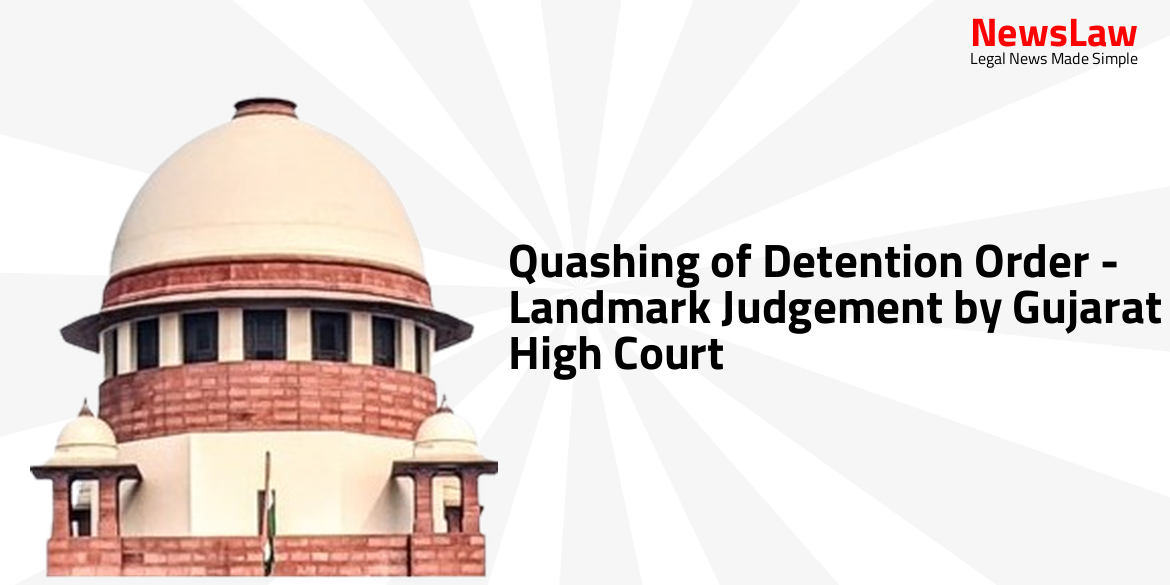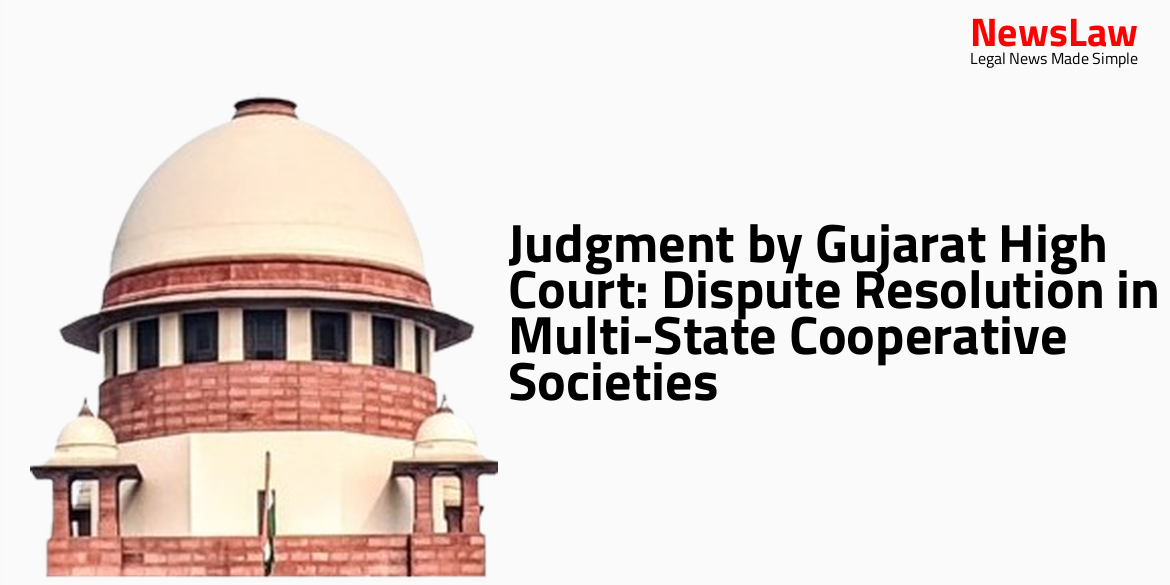In a significant ruling, the Gujarat High Court has quashed the detention order dated 03.11.2023 in a case challenging the Police Commissioner, Ahmedabad’s decision. The petitioner, involved in offenses against private individuals, was granted bail but later detained under the Preventive Detention Act. The court’s decision sets a precedent for the distinction between law and order and public order in preventive detention cases.
Facts
- The petitioner has filed a petition under Article 226 of the Constitution of India challenging the order of detention dated 03.11.2023 passed by the Police Commissioner, Ahmedabad.
- The detention was based on two offences registered against the petitioner, but apart from witness statements, FIRs, and Panchnama, there is no other substantial evidence connecting the petitioner’s activities with a breach of public order.
- The advocate for the detenue argues that the registration of offenses alone does not fall within the definition of ‘dangerous person’ under section 2(c) of the Act.
- It is contended that the alleged illegal activities do not pose a threat to public order but rather constitute a breach of law and order at most.
Arguments
- The offences in question are related to theft of vehicles belonging to private individuals
- The detaining authority could have cancelled the petitioner’s bail instead of resorting to detention
- There is no indication in the grounds of detention that the petitioner’s actions caused disturbance to public order
- The petitioner’s activities did not affect the overall functioning of society or pose a threat to normal life
- There is no evidence that the petitioner’s criminal cases disrupted public order or the rule of law
- The detaining authority had sufficient material on record to pass the order of detention.
- The petitioner confessed to the theft of cloths, which was referred to by the detaining authority.
- Other supporting evidences considered by the detaining authority include drawing of panchnama leading to discovery of the stolen vehicle.
- FIRs registered against the petitioner are under Chapter-16 and 17 of IPC, indicating dangerous person criteria.
- The subjective satisfaction of the detaining authority may not be legal as the alleged offenses in the FIRs do not relate to public order as required by the Act.
- Relevant penal laws are considered enough to address the situation and the detenue’s allegations may not meet the criteria of section 2(c) of the Act.
- Material must demonstrate that the person poses a threat to society, disrupting public order significantly.
Analysis
- Petitioner involved in offences against private individuals, enlarged on bail
- Ordinary law deemed sufficient for such cases
- Detention cannot be based on disturbance of public order
- Detaining authority failed to consider cancelling bail as alternative
- Lack of reflection on consideration to restore bail cancellation process
- Failure to show detainee as person under Section 2(c) of the Act
- Detention order lacks detailed application of mind
- Bail granted for offences detaining authority relies on
- Ineffectiveness of detention order to prevent further offences
- The Detaining Authority did not consider the option of canceling bail in the case.
- The subjective satisfaction of the Detaining Authority is considered vitiated as per the judgment in Shaik Nazeen v/s. State of Telangana and Ors, 2023 (9) SCC 633.
- The Hon’ble Supreme Court emphasized that if the detenue poses a menace to society, seeking cancellation of bail or appealing to a higher court is the appropriate remedy rather than resorting to preventive detention laws.
- The registration of FIRs alone does not establish a link to the breach of public order, and there is a lack of relevant material to invoke Section 3(2) of the Act.
- There is a distinction made between serious breaches of public order affecting the community and minor disturbances primarily injuring specific individuals.
- Simply causing disorder is not sufficient for action under the Preventive Detention Act; the disturbance must have the potential to impact public order to justify such action.
- Not every act of assault or injury to individuals constitutes public disorder; the concept of public order is different from that of law and order.
- Referenced a decision in Pushker Mukherjee v/s. State of West Bengal [AIR 1970 SC 852] to illustrate the distinction between ‘law and order’ and ‘public order’.
Decision
- The present petition is allowed.
- The order of detention dated 03.11.2023 is quashed and set aside.
- The detenue is ordered to be set at liberty forthwith unless needed in another case.
- The rule is made absolute accordingly.
- Direct service is permitted for the implementation of the decision.
Case Title: IRFAN YUSUFBHAI PATEL Vs. STATE OF GUJARAT
Case Number: R/SCA/21434/2023



